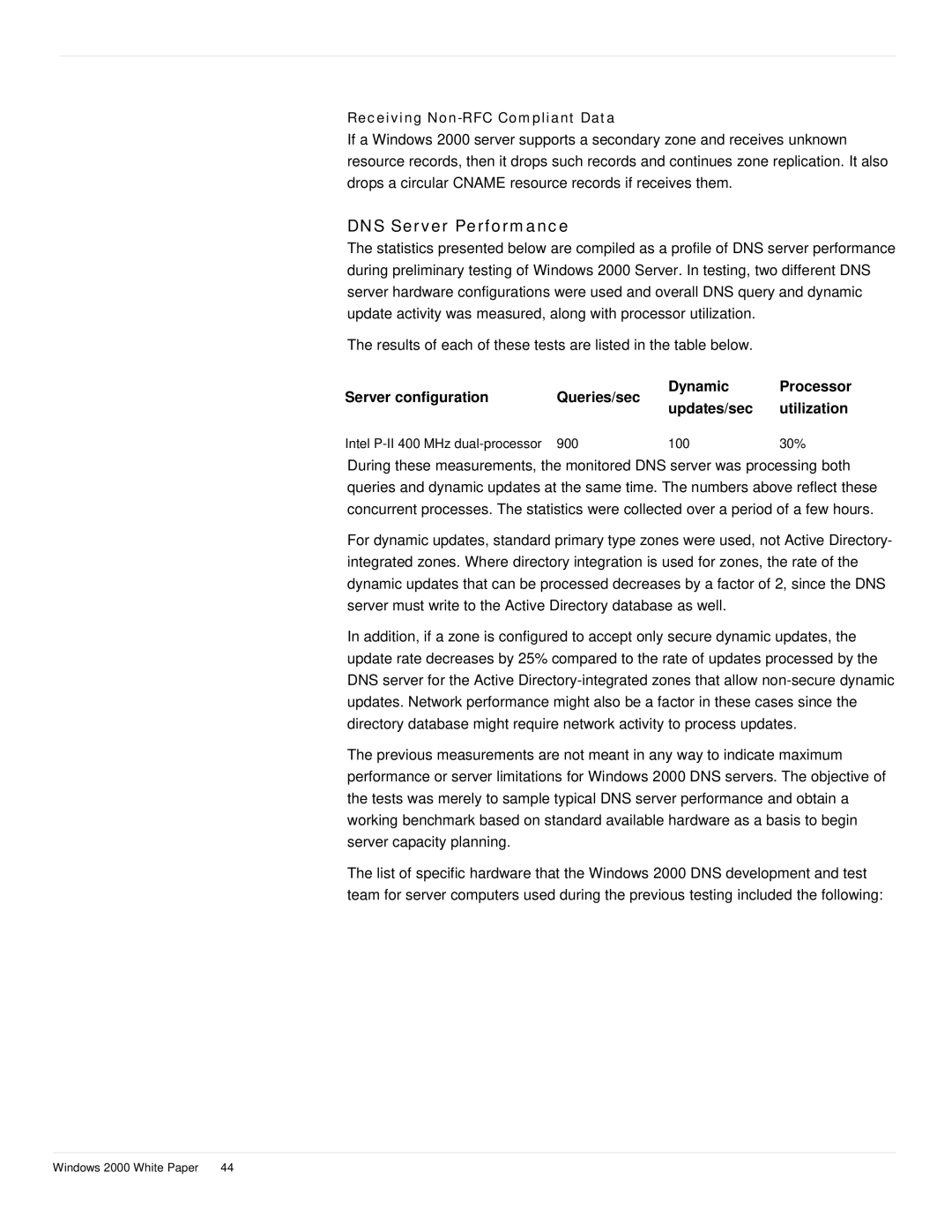
Receiving Non-RFC Compliant Data
If a Windows 2000 server supports a secondary zone and receives unknown resource records, then it drops such records and continues zone replication. It also drops a circular CNAME resource records if receives them.
DNS Server Performance
The statistics presented below are compiled as a profile of DNS server performance during preliminary testing of Windows 2000 Server. In testing, two different DNS server hardware configurations were used and overall DNS query and dynamic update activity was measured, along with processor utilization.
The results of each of these tests are listed in the table below.
Server configuration | Queries/sec | Dynamic | Processor | |
updates/sec | utilization | |||
|
| |||
Intel | 900 | 100 | 30% |
During these measurements, the monitored DNS server was processing both queries and dynamic updates at the same time. The numbers above reflect these concurrent processes. The statistics were collected over a period of a few hours.
For dynamic updates, standard primary type zones were used, not Active Directory- integrated zones. Where directory integration is used for zones, the rate of the dynamic updates that can be processed decreases by a factor of 2, since the DNS server must write to the Active Directory database as well.
In addition, if a zone is configured to accept only secure dynamic updates, the update rate decreases by 25% compared to the rate of updates processed by the DNS server for the Active
The previous measurements are not meant in any way to indicate maximum performance or server limitations for Windows 2000 DNS servers. The objective of the tests was merely to sample typical DNS server performance and obtain a working benchmark based on standard available hardware as a basis to begin server capacity planning.
The list of specific hardware that the Windows 2000 DNS development and test team for server computers used during the previous testing included the following:
Windows 2000 White Paper | 44 |
